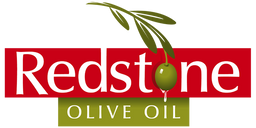Balsamic vinegar is one of the extremely important ingredients in one's kitchen, known for being a versatile ingredient with a deep, rich flavor. But how does white balsamic vinegar stack up against it? Both vinegars have the same basis of grape must but differ in certain characteristics that may enhance their use in different kinds of foods. In short, this article will discuss the key differences, uses, and benefits of both.
Balsamic Vinegar vs. White Balsamic: What's the Difference?
Indispensable in any kitchen, balsamic vinegar brings rich, intricate flavors to salads, condiments, marinated meats, or even as a touch to gourmet dishes. But if you come across white balsamic vinegar and ponder, how is it different from traditional balsamic? To answer these questions, let us look at their extraordinary characteristics and the conditions under which they can best be used.
Production Process
Both balsamic and white balsamic vinegars begin with grape must: freshly crushed grape juice containing the skins, seeds, and stems. However, different processing and aging lend the two vinegars significantly different tastes, colors, and textures.
Traditional Balsamic Vinegar: It is made by cooking grapes at high temperatures until caramelization occurs and aging it for many years in wooden barrels. This prolonged aging process gives the vinegar a dark, syrupy appearance and complex flavor profiles of sweetness mixed with slight tartness.
White Balsamic Vinegar: Processing occurs by lower-temperature cooking under pressure to avoid darkening with the subsequent aging in either stainless steel or lightly toasted barrels, rendering the vinegar much lighter in color with a more delicate crisp taste.
Taste & Appearance
Balsamic Vinegar: Dark, rich, and viscous with bold flavors; hints of caramel, oak, and fruit can be detected.
White Balsamic Vinegar: Light golden color; softer yet milder sweetness balanced with refreshing sourness.
Best Suited Cooking Applications
Balsamic Vinegar: Great for drizzling on roasted veggies, complementing cheese, glazing meats, and making balsamic reductions for salads and desserts.
White Balsamic Vinegar: The best for salads made of fresh produce, light vinaigrettes, seafood dishes, fruit recipes, and any light sauce where a darker vinegar would overpower.
Balsamic Vinegar Health Benefits
Each type of balsamic vinegar boasts impressive health benefits:
Rich in Antioxidants: Helps fight off oxidative stress while contributing to overall wellness.
Helps Digestion: The high acetic acid content may help in digestion and gut maintenance.
Helps Heart: It may slightly aid cholesterol levels and improve circulation.
Low in Calories & Naturally Sweet: The perfect choice in place of all processed dressings and sauces.
How to Choose from Them?
When looking for a deep, bold flavor that is delicious with meats, cheese, or roasted vegetables, choose traditional balsamic vinegar. White balsamic is the way to go when you want something lighter in style that will not darken the color of your dish but offers a bit of sweetness.
Both varieties have their place in every kitchen and make for worthy staples for every home cook.
Are you searching for some fine balsamic vinegars? Visit our store page at Redstone Olive Oil for the right choice for your next dish!
Conclusion
Balsamic and white balsamic vinegar are two very different versions in the flavors of freshwater, and among these, they are versatile in the kitchen. Traditional balsamic provides deep, rich flavors that are designed with robust dishes in mind, while white balsamic, on the other hand, is a much lighter and refreshing option, better suited for fresh salads and sea dishes. No matter which you choose, both are wonderful options to give your culinary creations that bit of refined sophistication.
If you are looking for the finest balsamic vinegars on the market, check out the Redstone Olive Oil selection and find the present one to fit your subsequent recipe!
FAQs
1. Is white balsamic vinegar an acceptable substitute for traditional balsamic vinegar?
Yes, but that very much depends upon the recipe-a lighter-flavored vinegar best suits those dishes wanting to keep a bright appearance.
2. How long is balsamic vinegar good for?
Both traditional and white balsamic vinegar have a long shelf life and do not expire for a while. Properly stored in a cool, dark cabinet, they could last for years.
3. Is balsamic vinegar helpful in weight loss?
Balsamic vinegar is low-calorie and low-sugar; therefore, it can substitute for heavy dressings and sauces, helping maintain weight.
4. Does balsamic vinegar have extra sugar?
Top-quality balsamic vinegar contains only sugars from grapes in their natural state. On the other hand, many commercial brands might add sugar, so please check the label.
5. What is the difference between balsamic glaze and balsamic vinegar?
The reduced version of balsamic vinegar, thickened, may usually contain sweeteners as well, thus generally known as the balsamic glaze, whereas the balsamic vinegar is more versatile. Glaze is specifically reserved for drizzling.






